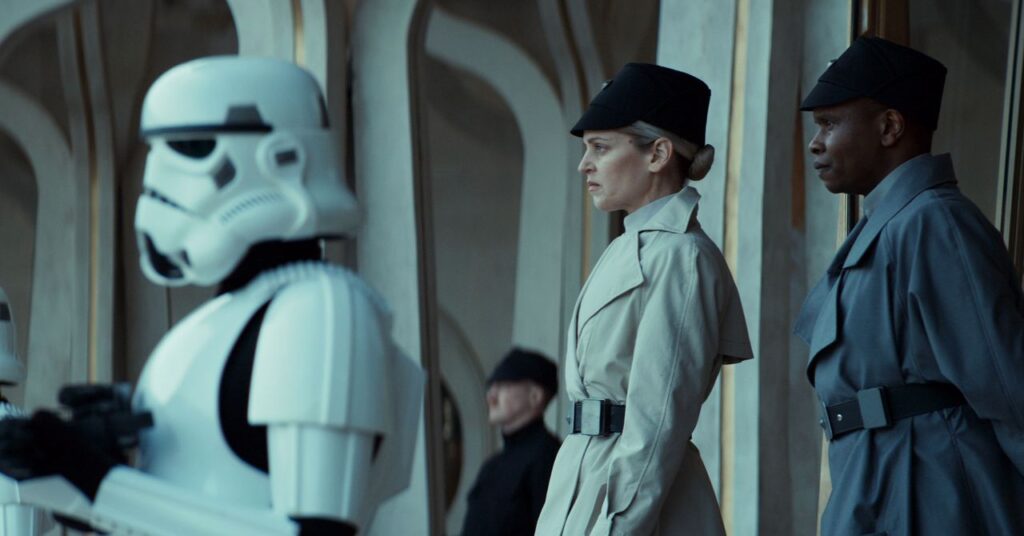
Star Wars’ ‘Andor’ Season 2 Depicts the Banality of American Fascism – WIRED
2025-04-23T17:43:12Z
The franchise’s Disney era has been defined by toothless politics, but “Andor” Season 2 is a vivid metaphor for America’s descent into authoritarianism.
On an isolated farm at the outer reaches of a fascist empire, a mid-level government toady interrogates his victims. Under the guise of conducting a government census, he’s sniffing out undocumented immigrants. When he finds one, he pounces, cornering a young migrant worker and attempting to coerce her into sleeping with him. When she refuses, he gets violent.
It’s a scene that feels familiar in America today, where ICE agents are rounding up immigrants (and sometimes even citizens) with disturbing impunity. But in this case, the farm isn’t in the US or even on Earth. Instead, it’s a scene from the second and final season of Andor, the critically acclaimed Star Wars show that chronicles the rise of the Rebel Alliance under the creeping shadow of the Galactic Empire.
If watching the new season of Andor makes you think of America’s current lurch toward fascism, that’s likely not a coincidence. In fact, it’s arguably the point of Star Wars in the first place. Throughout the franchise’s 47-year history, the Empire has served as a stand-in for everything from the United States during the Vietnam War to ancient Rome in the age of Julius Caesar. But while the Empire may be infinitely adaptable as a metaphor for fascism, Andor notably seems to represent the first time since Disney purchased Lucasfilm for $4 billion that this metaphor is being pointed back at the US.
“The Empire is both incredibly stable and incredibly flexible as an entity to hang metaphors on,” says Chris Kempshall, a historian and the author of The History and Politics of Star Wars. “We, the audience, understand that the Empire is evil, so that doesn’t need to be explained to us. But the details of the Empire have changed a lot over time to adapt to these changes in real-world politics.”
Until now, the Disney era of Star Wars has been defined by toothless politics; in Episode VII—The Force Awakens, the bad guys dress and act like generic Nazis, a cartoonish shortcut that establishes them as evil without attempting to say anything deeper about modern imperialism. In general, the sequel trilogy is too busy wrestling with the meaning of Star Wars itself to say anything potent about American politics, and when Disney’s Lucasfilm does take more ambitious narrative swings, like with The Acolyte, it has failed to escape the gravity of corporate demands and a small, loud, toxic fandom determined to drag the franchise to the right both politically and culturally.
That’s why Andor feels like such a rare victory for Star Wars. Not only is it the best thing to come out of the franchise in years (as many critics have argued), but it’s Lucasfilm’s most blatant attempt to get back to the type of biting political commentary that defined its pre-Disney era. Andor’s first season may have laid the groundwork with careful character development and world-building, but Season 2 makes good on that promise to deliver something painfully relevant at a time when many Americans are reckoning with the fact that the democracy we once thought was inextinguishable is seemingly crumbling right in front of us.
Auto-posted from news source






